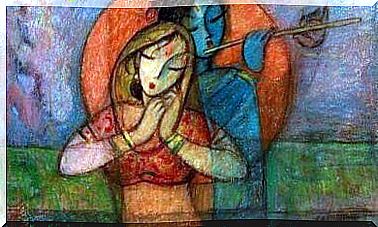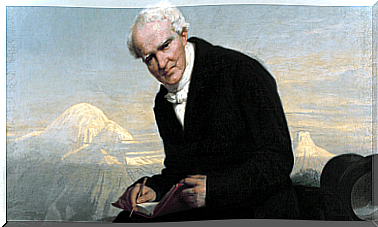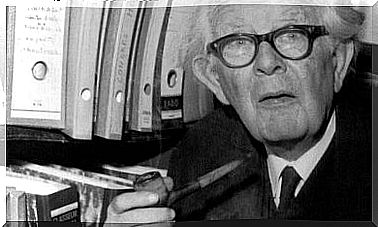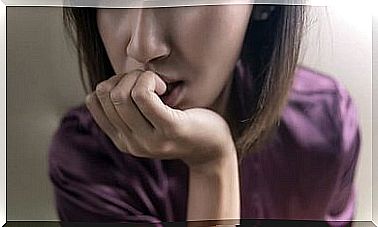Mystical Delirium: What Is It And How Does It Manifest Itself?

Mystical delirium is an interpretation of reality that has three characteristics. The first is that its central content is the religious theme. The second, that it is based on a judgment that is not shared by the society or the culture in which it occurs. And the third is that this situation causes great discomfort in the person. It affects his relationship with others and his progress in social life.
Mystical delirium also bears the name of messianic delirium. C elui sufferer usually feels that he has been chosen for a divine mission. Since it is not easy to set precise limits for a religious belief, mystical delirium is sometimes not easy to detect.
The determining factor of mystical delirium is the negative effect it has on the person. Someone may have beliefs that seem absurd to others, but that doesn’t mean it’s delusional. It cannot be said if these beliefs do not lead the person to feel anxiety and disadaptation. Beyond truthfulness or falsity, what turns mental content into delirium is the intensity, persistence, and damage it causes to the person.
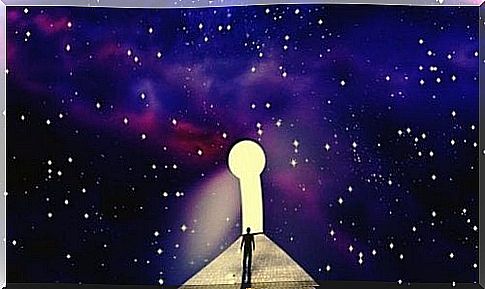
From religion to mystical delirium
Religion is the belief that there is a divine or supernatural power that must be worshiped. We must obey this power. This belief is usually accompanied by an ethical code that must be followed and a set of rituals that must be practiced. The line between religion and delirium is not easy to define. What falls under belief in one human group can be seen as completely irrational in another group.
Religious people often adopt mysticism as a form of life. This can be defined as a maximum exaltation of religious feeling. In this case, they assume a pattern of behavior that brings them closer to perfection, from the point of view of their belief. In doing this, they seek spiritual union with God. They usually achieve this through intuition and ecstasy, especially by performing rituals.
Sometimes the religious person makes a judgment about reality. However, this judgment is not necessarily shared by the other members of his belief. It becomes immutable and more and more intense. When a mystical delirium takes place, the person persists in this judgment. This leads her to experience states of intense concern and anxiety.
The one who suffers from a mystical delirium begins to orient his / her whole life towards this belief, which is abnormal or far from a typical belief. He / she stops studying, working and leading a life that one might consider “normal”. It is frequent that his reasoning is based on hallucinations or pseudo-hallucinations, that is to say on biased perceptions of reality.
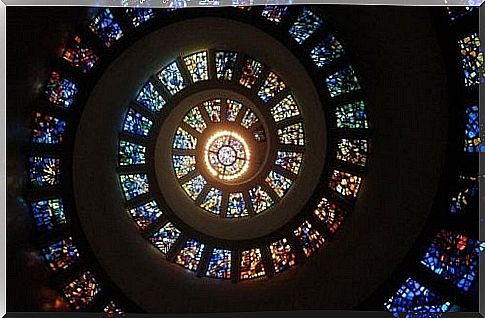
Contents and effects of mystical delirium
Even if it seems a little paradoxical, the mystical delirium represents an attempt to reconnect with reality. Before this delirium, we find a very big fracture in the psychic life of the person. This, in fact, often suffers from an accumulation of pain that ends up overflowing. She fails to cope with this suffering and breaks inside. Delirium is then a way to repair this internal damage.
It has been established that Catholics and Christians who suffer from mystical delirium generally develop content related to guilt and atonement. Jews are more likely to suffer from delusions linked to the presence of nocturnal demons.
Beyond the delusional content, it should above all be emphasized that this significantly affects the life of the one who suffers from it. Mystical delirium creates great suffering. It causes the person to make false judgments about reality. It also isolates it and prevents it from living a functional life.

Treatment of delirium
Dealing with mystical delirium, just like other forms of delirium, is never easy. In general, those affected do not want to be treated. Why? Because they see external interventions as an intrusion into divine plans. The required treatment is therefore quite long and its results are almost always slow to appear.
Psychiatry and medication can help moderate some of the effects of delirium, such as excessive anxiety or the production of hallucinations when they exist. But this field of action is limited. Psychotherapy, on the other hand, promotes introspection that improves a person’s adjustment. It also allows for a more reasonable organization of one’s beliefs.
The entourage of the affected person is also fundamental. It is recommended that the family and relatives receive psycho-education to be able to deal with the situation. Understanding, affection and stimulation are decisive. The goal is to help the person have a less stressful and more balanced life. It is always possible to do it.

